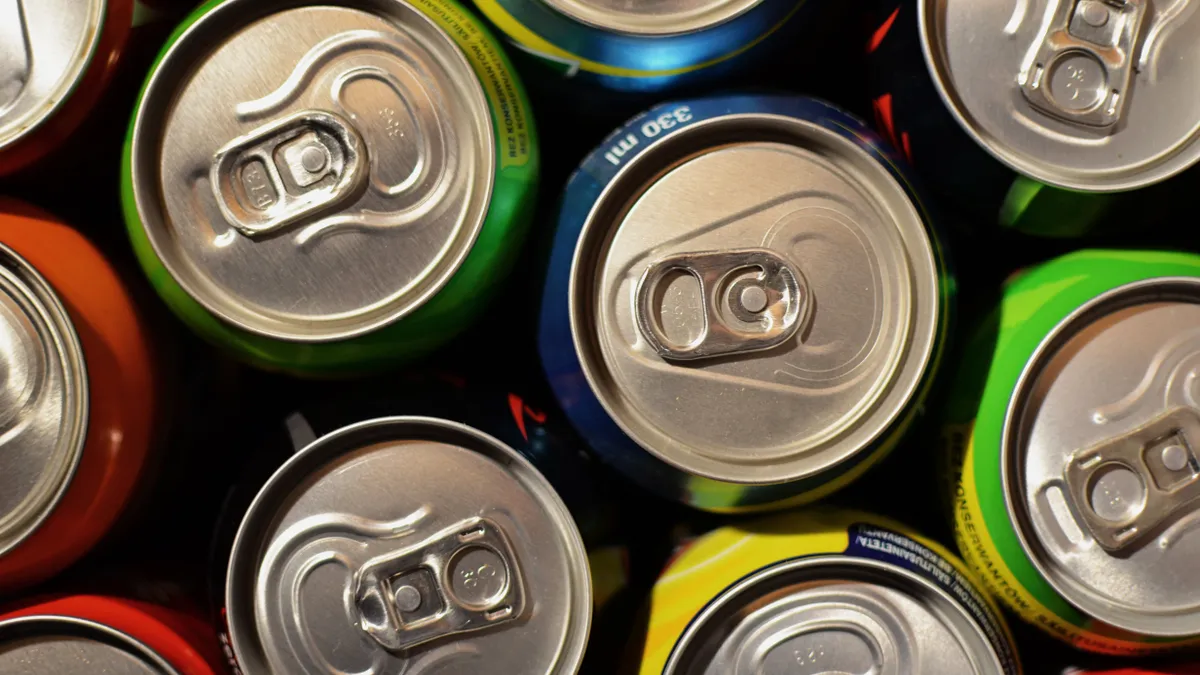Dive Brief:
- The pandemic-driven aluminum can shortage continues to constrain beverage makers. Ball Corporation anticipates "demand continuing to outstrip supply well into 2023," President Daniel Fisher said in its latest earnings call.
- "We are capacity constrained, right now," Ball CEO John Hayes said on the call as a warning to beverage companies considering using cans. "That's one of the reasons why we've been accelerating our investments, to kind of free up some capacity to really kind of push those things. Because right now, the reality is we don't have the cans to supply those people that are looking to go into it."
- For Molson Coors, the shortage has become less severe, because of its expanded sourcing efforts. It expects "normal material availability" to resume by the end of Q1, CEO Gavin Hattersley said during an earnings call Thursday. But the beverage company's overall North American volume was down 6.9% year over year, which it attributed to aluminum can constraints and on-premise restrictions.
Dive Insight:
The aluminum can shortage continues to plague the food and beverage industry, as beverage demand is still weighted toward home consumption and grocery over restaurants. Can manufacturers are revving up production, and beverage producers are expanding sourcing to meet sustained demand.
Molson Coors leaned on additional sourcing to shore up its can inventory.
"After the uptick of the coronavirus pandemic, we aggressively began sourcing additional aluminum cans from all over the world to support our core brands to address unprecedented off-premise demand," Molson Coors CFO Tracey Joubert said on the call.
That sourcing reached four continents and required a close working relationship with suppliers, Hattersley said. And Molson Coors said it completed a production line for about 750 million "sleek cans" annually.
Additional sourcing and the gradual opening of new production facilities has not proven enough yet, but there are signs of improvement. Sourcing for glass bottles, paperboard and toll cans from Molson Coors' suppliers has improved, executives said, with Hattersley pointing out that "Coors Light can inventory is higher than it was at this point last year."
Ball, in anticipation of its expanded retail launch this year, established a plant dedicated to producing aluminum cups instead of sourcing the finished product, said CEO John Hayes.
For Ball's North America sector, volumes were up 11% and 6% for full year 2020 and the fourth quarter of 2020, respectively. Multiple new U.S. production facilities are in operation, and the company is readying to ramp up production in its Pittston, Pennsylvania, plant in the second half of 2021.
















